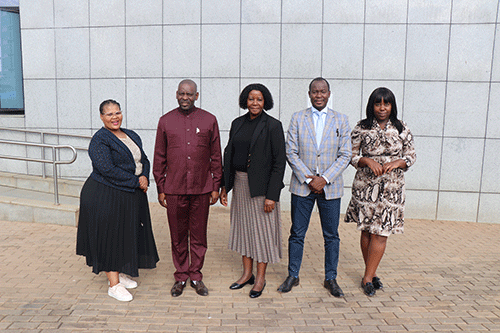George Sanzila
LILONGWE – Namibian Members of Parliament attending the 51st SADC-PF Plenary Assembly all agree that the transformation of the forum into a regional parliament will help SADC countries accelerate regional integration and harmonise legislations aimed at tackling challenges facing the region. Efforts have been ongoing for the region to have its own Parliament that will facilitate debates on regional issues and expedite the implementation of SADC protocols that have to be ratified and adopted into national laws.
President of Malawi Lazarus Chakwera, also chairperson of SADC, affirmed his commitment to the transformation when he officially opened the plenary assembly in Malawi on Monday, 11 July. During the summit of SADC heads of state held in Malawi in 2021, the proposal to transform the forum into a regional parliament was approved.
Leader of the Namibian delegation Agnes Kafula said a regional parliament will unlock the potential of the region, adding that it will also result in the harmonisation of legislation for the common interest of the region.
“It will expedite and result in genuine legal frameworks on issues of regional interest and concern. It will also foster the vision of regional integration as envisioned by our forefathers, and unlock our social, economic and political potential as a region”, she added.
Namibian MP Utaara Mootu, who serves on the Standing Committee on Democratisation, Governance and Human Rights, agreed with the immediate transformation of the forum into a regional parliament, observing that many SADC protocols that could be domesticated in order to benefit member states remain idle because of the status quo.
“It is important that we become a regional parliament so that the various good instruments that we have, including the SADC Public Financial Management Model Law, can be implemented in member countries. The good thing is that we are coming together to see how as a SADC body, we can put more funds to the fight against corruption and other cases of human rights abuses. The challenge we have noted, however, is the implementation of these instruments”, she said.
Paula Kooper, another Namibian lawmaker attending the event representing Namibia on the Committee on Gender Equality, Women’s Advancement and Youth Development that called for a youth quota in SADC parliaments, echoed similar sentiments. She noted that legislative frameworks aimed at addressing youth issues such as unemployment should be developed and fast-tracked. “As member states, we must take deliberate actions in terms of youth-responsive budgeting. We must inculcate a culture of inter-generational leadership, and the mentoring and grooming of young people. Matters concerning the youth such as unemployment should be addressed in a timely manner”, advised Kooper.
The slow progress of transformation has been attributed largely to a lack of commitment by some countries, and other impediments such as financial constraints. SADC remains the only region without a regional parliament. There already exist other organs such as the secretariat (executive) and a tribunal (judiciary), with the legislative arm the only missing link. Other regional bodies such as the Economic Community of West African States (ECOWAS) have regional parliaments, where matters of regional interest and mutual concern are discussed and resolved by parliamentarians at that level.
SADC-PF was established in 1997 at a SADC summit in Malawi to provide a platform to support and improve regional integration through parliamentary involvement, and promote best-practices in the role of parliaments.
Other lawmakers representing the Namibian Parliament at the plenary were Vipuakuje Muharukua and Phillipus Katamelo.
* George Sanzila works as Chief Information Officer in the Division: Research, Information, Publications and Editorial Services at the National Assembly.


